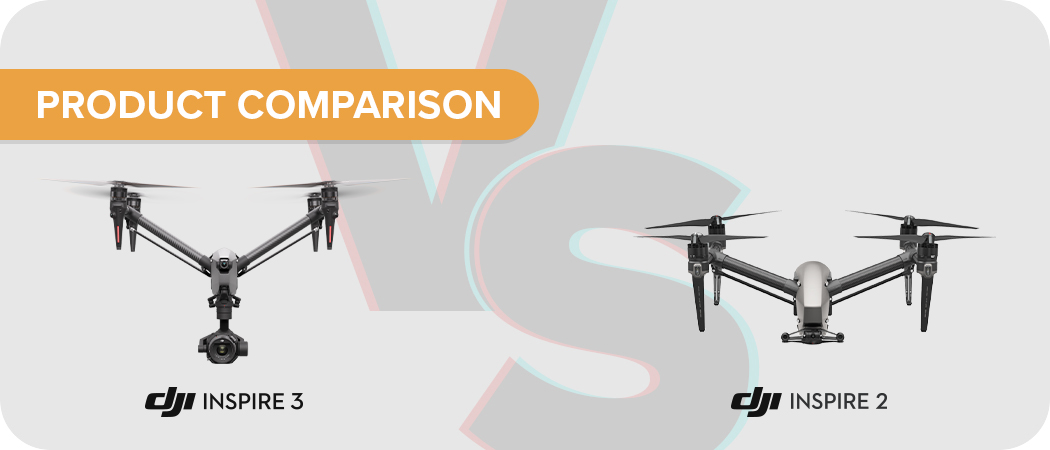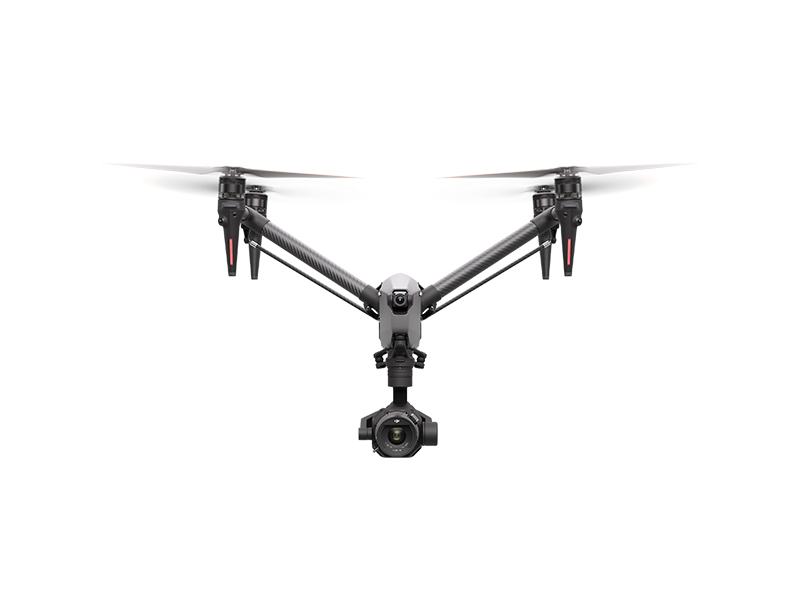After what seems like a lifetime of waiting, arguably the most highly anticipated DJI product has finally been announced: DJI Inspire 3! As per usual, we’re taking a look to see how it stacks against its previous generation counterpart… Let's find out what’s new!
What is the DJI Inspire 3?
The latest addition to DJI’s cult classic Inspire series, the DJI Inspire continues the Inspire legacy with an all-new airframe designed to deliver show-stopping cinematics from the sky. Sporting the new Zenmuse X9-8K Air camera that shoots in 8K/75fps and 4K/120fps Apple ProRes RAW, Inspire 3 delivers industry-leading aerial cinematography with a laundry list of flight, safety and optimisation features.
A Quick Note
For the sake of this comparison, we’re going to assume that the Inspire 2 has been equipped with the Zenmuse X7 6K camera, thus comparing the best possible specs achievable on the Inspire 2 to the new DJI Inspire 3.
DJI Inspire 3 vs DJI Inspire 2: Spec Comparison
Love diving deep into the spec sheet? We’ve got you covered! See how the numbers stack up against each other in the table below.
| DJI Inspire 3 | DJI Inspire 2 w. Zenmuse X7 | |
| Sensor Size | Full Frame |
Super 35 |
| Video Performance | 8K/25fps CinemaDNG 8K/75fps ProRes RAW 4K/120fps ProRes RAW |
6K/30fps ProRes RAW 6K/30fps CinemaDNG |
| Native ISO | Dual native ISO 800/4000 |
400 (in EI mode) |
| FPV Camera | 1/1.8” CMOS Sensor 161° DFOV 1080p/60fps transmission |
1/7.5” CMOS Sensor 84° DFOV 480p/30fps transmission |
| Video Transmission | DJI O3 Pro Up to 15 KM range Up to 12 KM range w. Dual Controls |
DJI Lightbridge 2 |
| Flight Time | 28 minutes | 23 minutes |
Read More: Introducing DJI Ronin 4D: A Cinematic Game-Changer
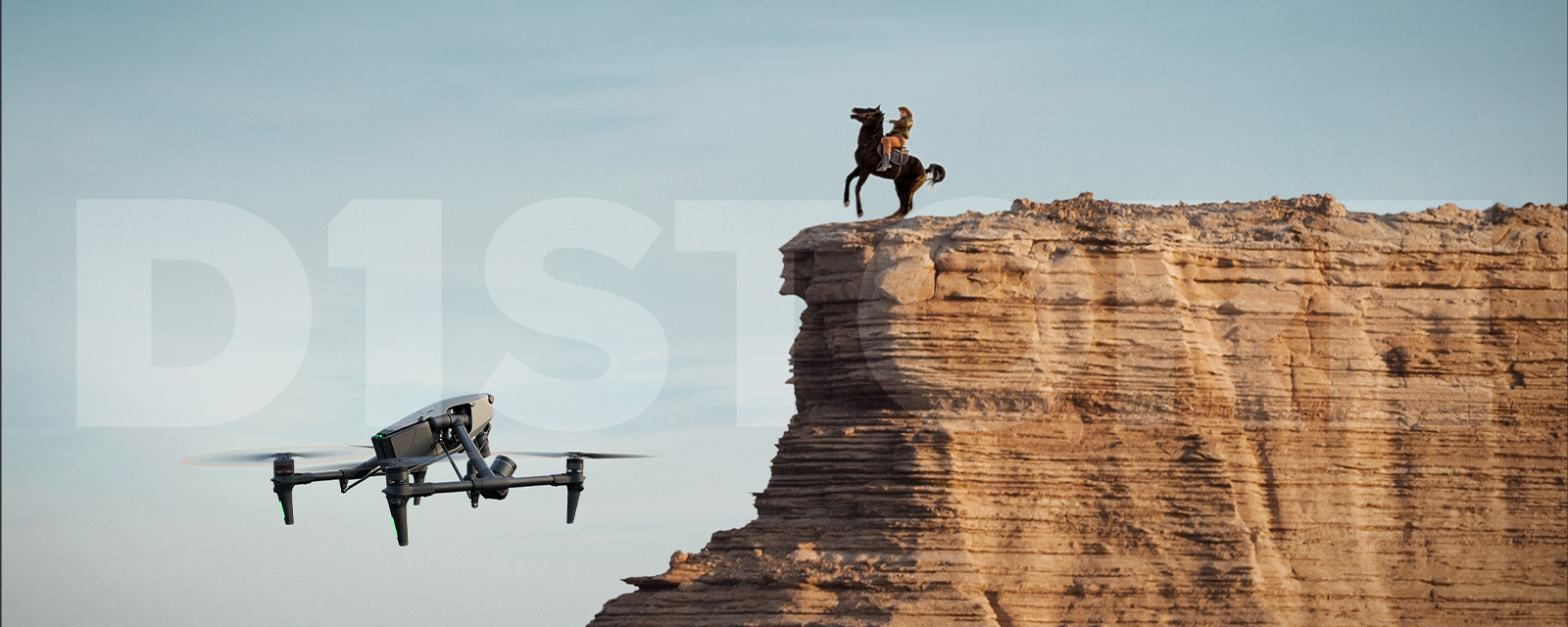
DJI Inspire 3 vs DJI Inspire 2: Camera Performance
Sensor
We’re starting with what matters most to Inspire series pilots: the camera! The biggest difference between the Zenmuse X7 and Zenmuse X9 Air is, of course, their sensor sizes. X7 sports the classic Super 35 sensor while X9 Air adopts a new full-frame sensor size for capturing even more details.
What does this mean? Essentially, Inspire 3’s new X9 Air camera captures more than ever before with over double the sensor surface area compared to X7. With a larger sensor in tow, the DJI Inspire 3 delivers greater pixel density for higher quality imagery whilst fully utilising the true shooting angle of DL lenses without having to crop.
Lenses
Both the I2’s Zenmuse X7 and I3’s Zenmuse X9 cameras support the DL lens mount and DJI’s suite of DL lenses. This means that if you invested in the DJI Inspire 2 and accessories including lenses, your gear will not go to waste with the new Inspire 3!
Read More: DJI Mini 3 vs DJI Mini 3 Pro: Which is Best?
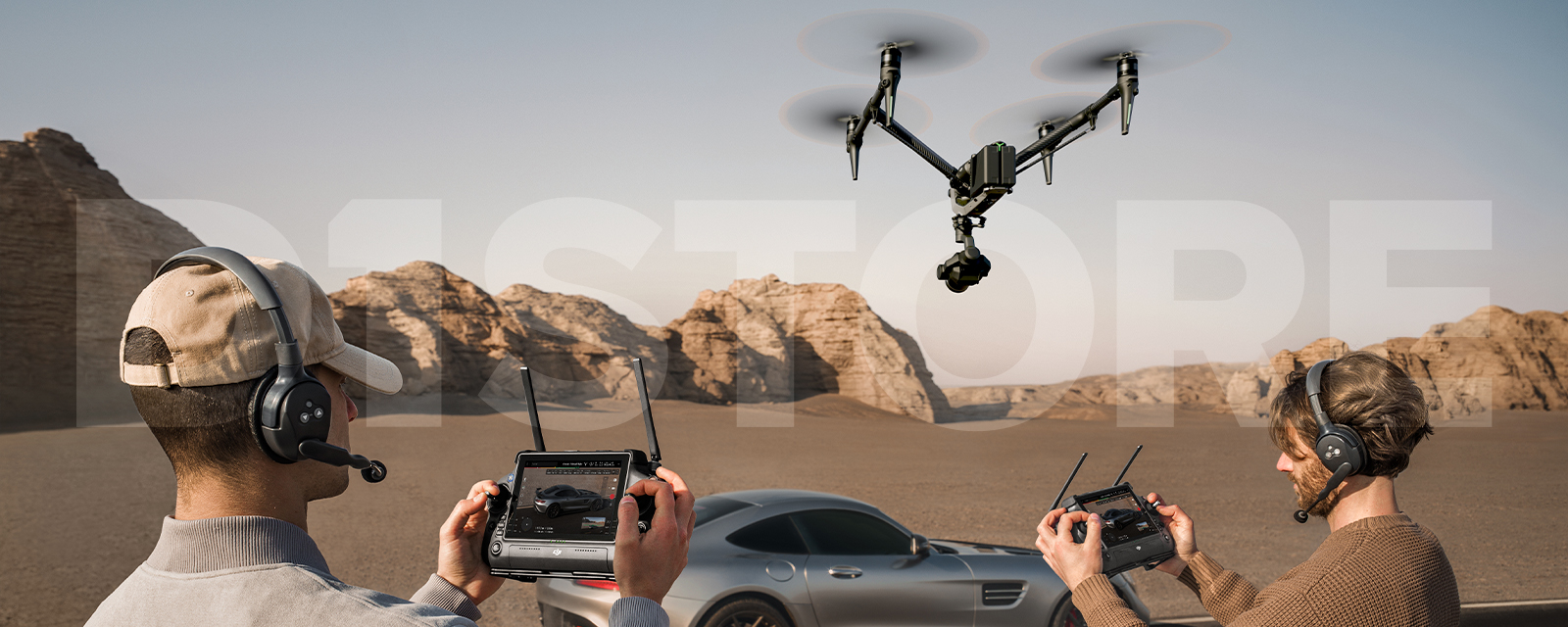
DJI Inspire 3 vs DJI Inspire 2: Flight Performance
FPV Camera
With many users opting to use a dual-controller configuration when flying Inspire series drones, the DJI Inspire 2 introduced a secondary FPV camera designed to provide a dedicated camera view for the piloting operator. The FPV camera has received a massive upgrade with Inspire 3, boasting a much, much larger 1/1.8” CMOS sensor compared to the 1/7.5” CMOS sensor of the Inspire 2.
This larger FPV camera sensor not only provides a better view for safer piloting, it features a significantly wider FOV of 161° compared to Inspire 2’s 84°. Additionally the previous transmission quality of 480p/30fps has been completely overhauled with Inspire 3’s FPV camera now delivering 1080p/60fps video.
Flight Time
The DJI Inspire 2 was powered by DJI TB50 Intelligent Batteries, so it only makes sense that the DJI Inspire 3 utilises the new DJI TB51 Intelligent Batteries. TB50 provided up to 23 minutes of flight time while the TB51’s up the ante with up to 28 minutes of total flight time on Inspire 3.
While the new TB51’s ultimately provide a marginal amount of additional flight time compared to the Inspire 2’s TB50 batteries, they sport significant upgrades in the charging domain. When paired with the DJI TB51 Intelligent Battery Charging Hub, Inspire 3 batteries can be charged rapidly, with a pair of batteries going from zero to 90% in a mere 35 minutes.
Read More: Is the DJI Mini 3 Pro with DJI RC Worth It?
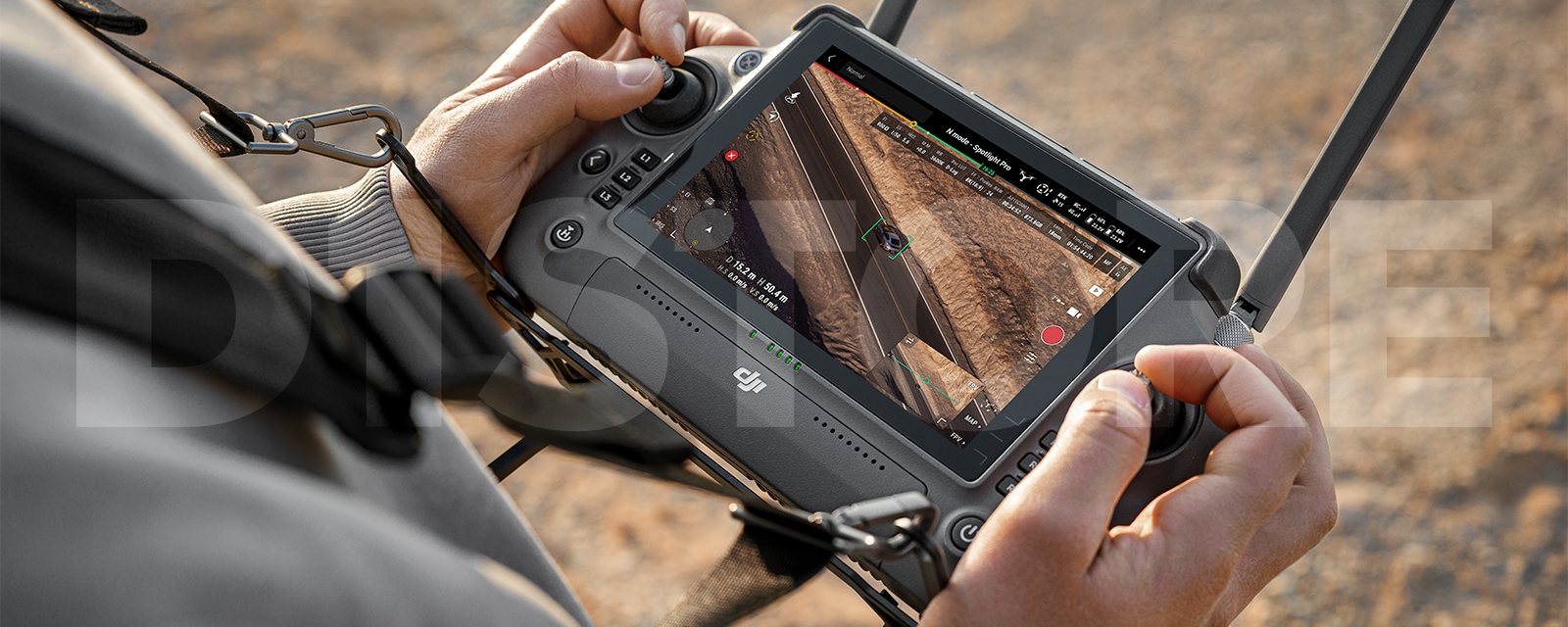
DJI Inspire 3 vs DJI Inspire 2: Safety Features
Obstacle Avoidance
Both the I2 and I3 drones feature intelligent obstacle sensing, however Inspire 3 boasts an obstacle avoidance algorithm that has been heavily upgraded and is aided by 9 individual obstacle avoidance sensors embedded around the body of the drone.
Meanwhile, DJI Inspire 2 is limited to three-directional obstacle sensing, which may not seem like much in 2023, but was absolutely game-changing upon the Inspire 2’s release in 2016.
DJI Inspire 3 vs DJI Inspire 2: Workflow + Ecosystem
Controllers
The piloting and remote controller experience is one area in which the DJI Inspire 3 truly separates itself from its predecessor.
While beloved by pilots, the DJI Inspire 2 remote controller does not feature a built-in screen and requires a secondary display for live video playback. This is typically achieved via an external tablet or CrystalSky display monitor.
Inspire 3 is piloted using the DJI RC Plus, first introduced alongside the DJI M30 series in 2022. This controller was developed from the ground up for professional use and features a 7” 1200 nit display - the brightest among the DJI range. Also featured are a number of custom mappable buttons, a waterproof outer body, up to 6 hours of battery life and more!
Where to buy the DJI Inspire 3 in Australia
The all-new DJl Inspire 3 cinema drone has officially been announced in Australia and is now available for pre-order in-store and online at D1 Store Australia.

